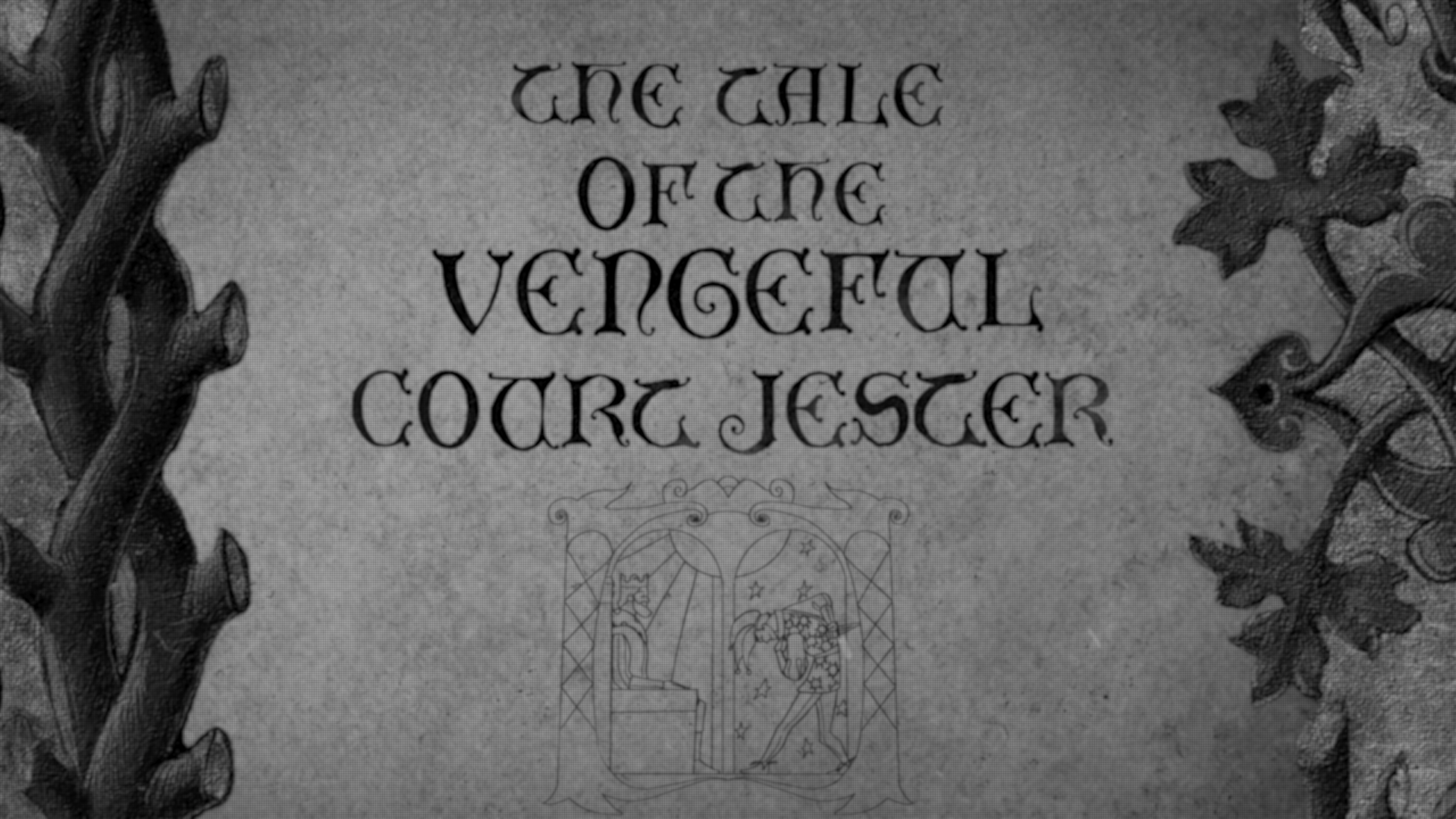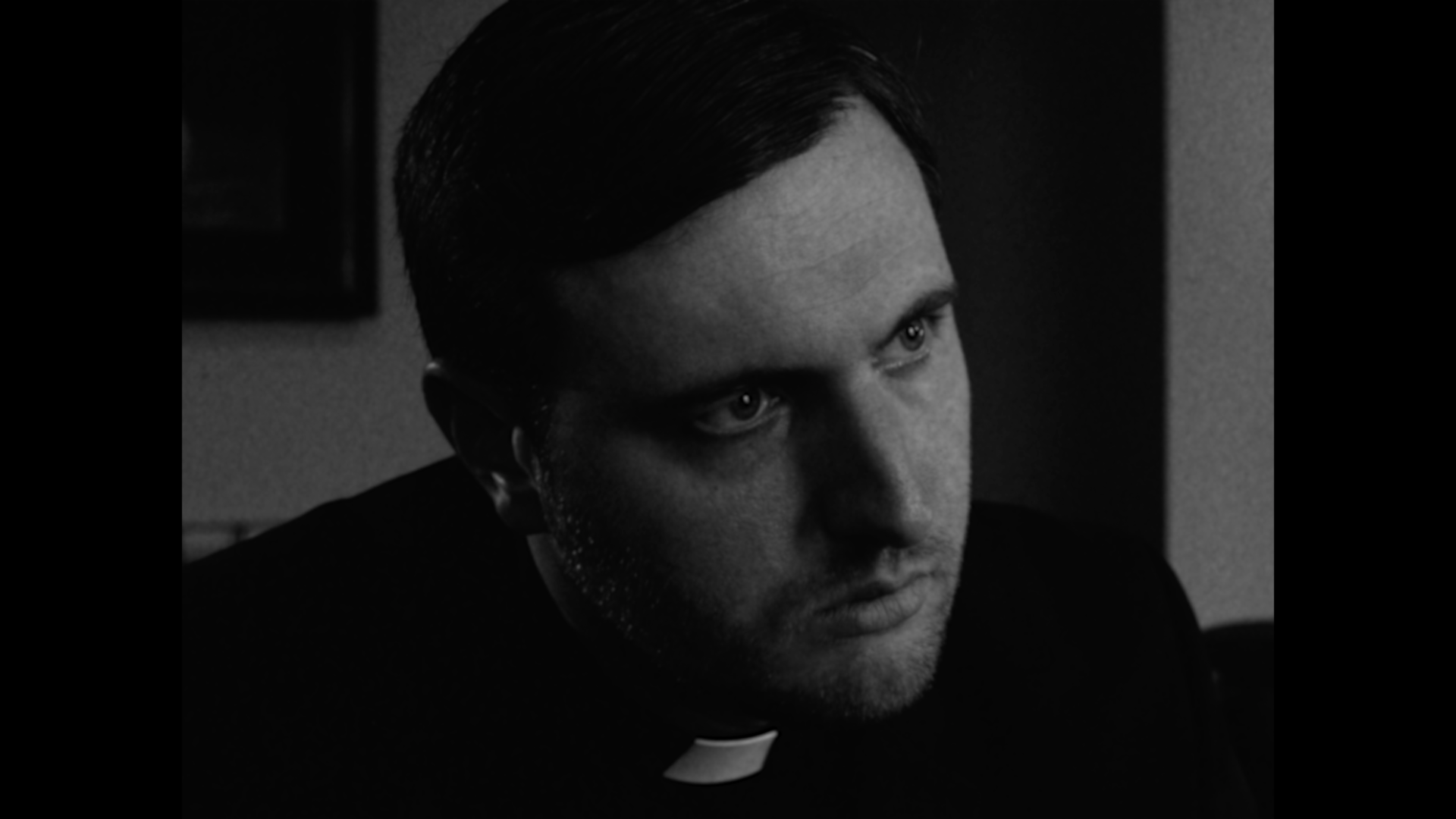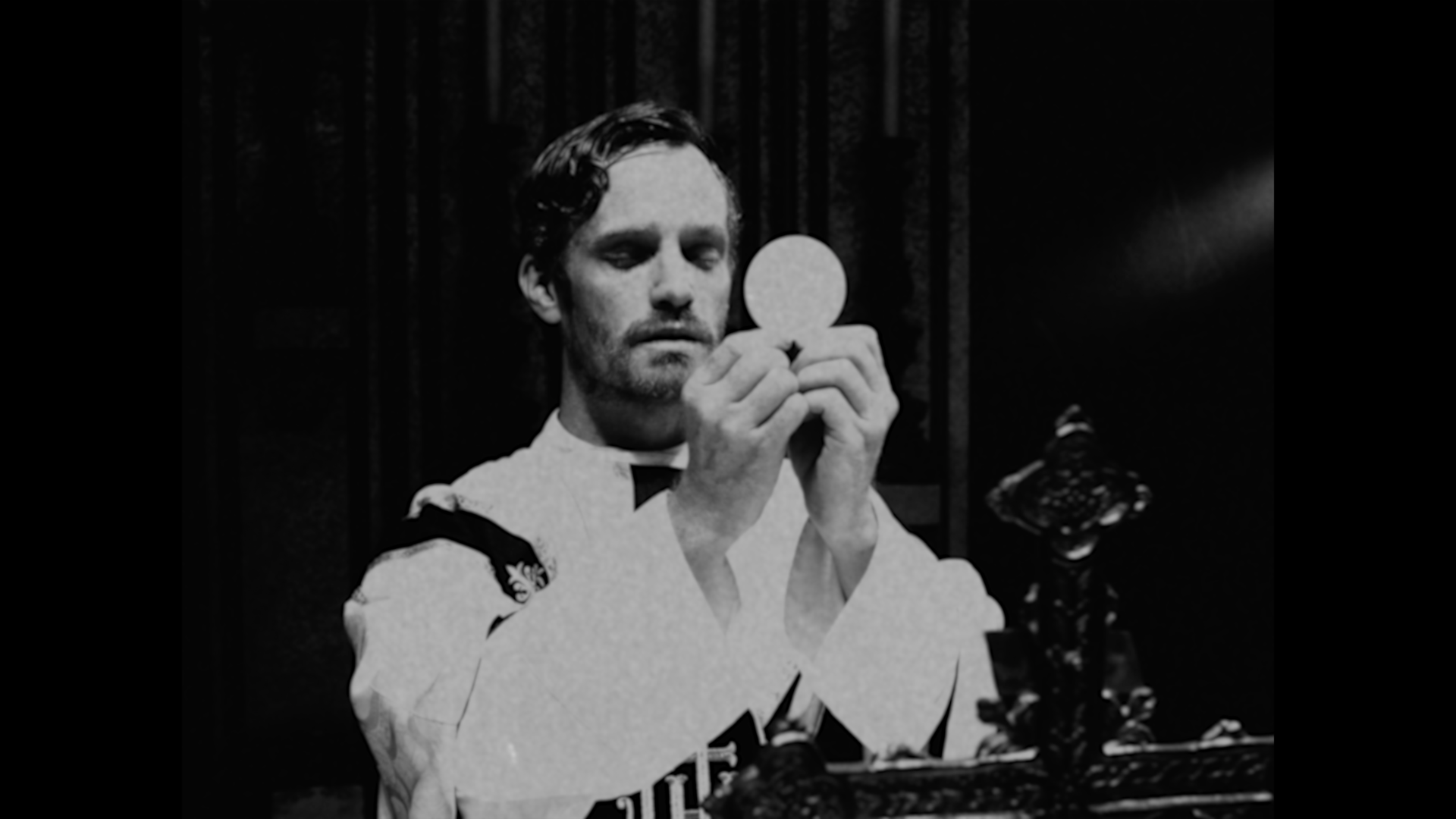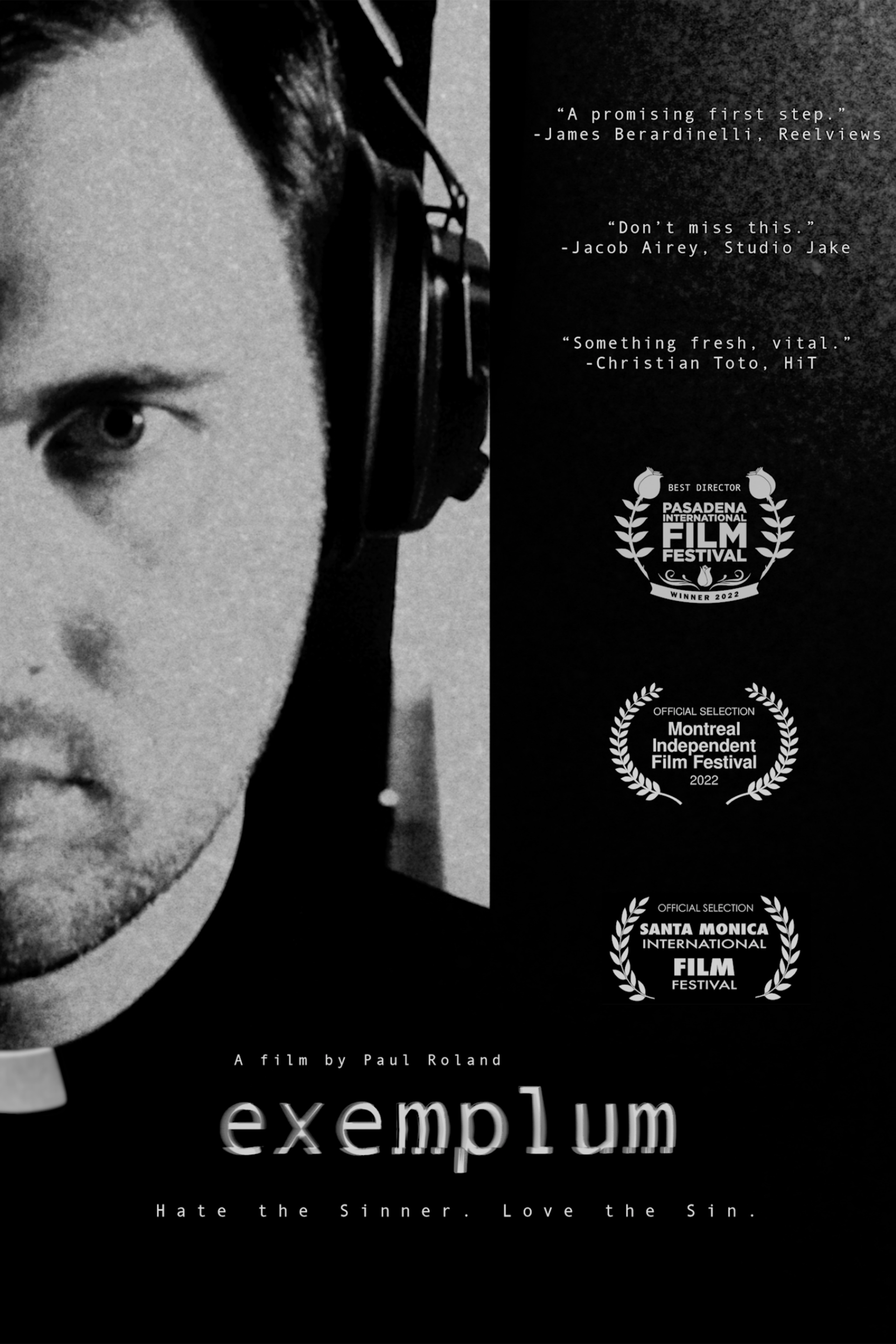“EXEMPLUM /’ic-zem-pluh m/ n. An example or model. An anecdote that illustrates or supports a moral point, as in a medieval sermon.”
That’s the definition that appears at the start of writer-director Paul Roland’s award-winning debut film Exemplum—a spiritual and psychological thriller that Roland wrote, directed, produced, and starred in—which chronicles one man’s discovery that God’s grace is the only way to “rise above the chaos” of our Fallen world.
The film’s opening narration sets the scene: “In the year of Our Lord, in the latter days of the Great Pandemic, in a city no discernible from the next, there lived a priest—a priest possessed of deep devotion and deep impiety and whose faith would be determined at the crossroads of both. This is his story. This is his exemplum.”
Watch the trailer:
Thus, begins the story of 33-year-old Catholic priest Father Colin Jacobi (played by director Roland). Colin’s “deep devotion” is not to his vocation as a priest of God, but to his desire to be a social media influencer. He dreams of being the new Archbishop Fulton Sheen for the age of YouTube and Twitter.
But unlike the Venerable Fulton Sheen—a man of deep faith and love for God’s people—Colin’s quest isn’t for Christian converts, it’s for clicks. From the start we see him fervently (you might say religiously) checking the number of his Twitter followers and YouTube subscribers. In fact, he has a statue of a thumbs-up “like” button displayed in his room more prominently than any cross or religious image. This is what he worships.
At first, he doesn’t have much luck at attracting followers to his YouTube show—which he calls “Exemplum”—until he discovers a deeply impious method for creating his morality sermons: he uses the real-life confessions of his parishioners, which he has been illicitly recording.
He stumbles upon this by accident, as he later confesses to his superior at the parish, Father Liam (played wonderfully by Francis Cronin). Colin decides to secretly wire his confessional after hearing about a priest who had been falsely accused of a #MeToo allegation but was cleared when a security camera in his church proved his innocence. But what if this false accuser had claimed the incident had happened in the confessional where no video camera could have saved the day, Colin wonders.
So, he decides to secretly tape his confessions for his own protection (at least at first). “I figured the choice was binary: excommunication or reputation. I chose reputation,” Colin said.
Let me pause for the non-Catholic readers and explain the severity of his choice. To break the seal of the confessional is indeed an excommunicative offense, which means that a priest who does this has damned his soul to hell. It is the most serious sin a priest can commit. And, yet, for Colin, his “reputation”—the most treasured commodity of every social media influencer—is more important than his eternal soul.
In the confessional, we witness Colin’s intelligence as a counselor, but also his thinly disguised disgust at the foibles and venality of his wealthy parishioners. (After all, this wouldn’t be a morality tale about cancel culture without the smug superiority of a would-be influencer.) We see Colin’s disgust with the serial adultery of a wealthy entrepreneur, and his impatience with the facemask-wearing Karen who hordes all the hand sanitizer during the pandemic, and his annoyance with the online troll who likes to rile people up just for kicks. It’s his frustration with that last character—who he refers to as the “Jester”—that gives him the real inspiration for his YouTube show.
The “Jester” intrigued Colin as a morality tale. “Originally I thought his rage stemmed from a sense of wounded pride,” Colin confesses to Father Liam. “But seeing his internal struggle, I realized that it stemmed from a sense of injustice in the face of disordered chaos. Rage was his only means of control.”
We see the “Jester” in the confessional rage against God: “What kind of a sick psychopath just sits there and lets the most wicked people into high places while the rest of us just suffer under them?”
The viewer is left to wonder if the “Jester” is actually Colin himself raging at God for all the “wicked people in high places” — including his own wealthy and powerful parishioners and his corrupt bishop.
That mention of “chaos”—and specifically “rising above the chaos”—is a phrase we hear throughout the film. We see that Colin is obsessed with controlling the disordered chaos of this Fallen world. Like a character in a Walker Percy novel, Colin has lost faith in everything but the Fall of Man. All he sees is Mankind’s damnation, not God’s salvation.
The “Jester,” whoever he is, gives Colin the idea for his YouTube show “Exemplum.” Now these secretly recorded confessions will be put to use.
“It was as if I had discovered some metaphysical code that God had given only me eyes to see,” Colin confesses to Father Liam. “Suddenly people’s sins, disorder, chaos, and frailty yielded an articulate language that I was translating to the masses with ‘Exemplum’ as my codex…. I collected people’s sins and used them to build ‘Exemplum.’ The very thing I was entrusted to absolve, I froze in time forever.”
He could bring order to their chaotic sins by transforming them up into 10-minute morality tales about the damnation of sinners who have been cancelled from redemption. And with some nice production value, the clicks and “likes” and “hit subscribes” take off. (See the above video from the film showing a sample episode of Colin’s “Exemplum” show.)
Colin gets his wish. He becomes a social media star. He’s the new celebrity priest, and people are lining up outside of his confessional every week.
Soon the Archdiocese of New York wants to make Colin’s “Exemplum” YouTube show a part of the religious studies curriculum for every Catholic school in New York. But then they decide against it, correctly realizing that Colin’s morality tales are too focused on damnation and not redemption.
This is the first blow to Colin’s influencer ambitions. He suffers two more when his own bishop decides that he is gaining too much notoriety and so orders him to stop making his “Exemplum” YouTubes and focus on his relationship with God. When Colin balks at this, the bishop transfers him from his wealthy parish to a poor parish in the middle of nowhere.
What happens next is the heart of the film, as Colin’s wounded pride and rage at these setbacks set him on a path to break each of the three vows every Catholic priest makes; and in the process, we see him descend into a world of blackmail, bribery, mysterious hackers, and even murder. (Without giving away any spoilers, I’ll just say that the film earns its label as a suspense thriller.)
The first vow he breaks is obedience when he disobeys his bishop and tries to go around him to get his YouTube show back. When that fails, we see him break his vow of poverty when he concocts a million-dollar blackmail scheme.
Finally, we see him lose his innocence totally when he breaks his vow of chastity. And it’s after this last one—this final Eden-like Fall from grace—that he literally tosses away his priestly collar and throws his cross in the trash. He even stares down God at the altar and defiantly declares, “I am my own man.”
From the moment he makes this prideful declaration that he is his own man and not a man of God, his Faustian bargain unravels to the point where the film’s Mephistopheles-like character taunts him for his “illusion of control” and his “warped god complex.”
At first impression, you might think this is a nihilistic film about Fallen Mankind in a chaos-plagued world abandoned by God, but you would be very wrong. The counterpart to Colin’s bad priest is a very good priest in the character of his superior, Father Liam. Right before Colin descends down his path of destruction, Liam tries to shepherd him away from the abyss.
In response to Colin’s judgmental moral superiority, Liam paraphrases a quote from Aleksandr Solzhenitsyn’s Gulag Archipelago, in which the great Russian dissident imprisoned in the horrifying evil of the Soviet gulag system wisely observes: “If only there were evil people somewhere committing evil deeds and we could destroy them. But who is willing to destroy a piece of their own heart?”
“To be devils is in our nature, but only by the grace of God are we sanctified,” Liam tells Colin.
I believe that is the real message of the film and its answer to the preening false moralism of cancel culture which revels in the sins of others. The true hero of Exemplum is God who offers us His grace and absolution in the very confessional that Colin desecrated with his social media ambitions. Ultimately, it’s God’s grace that allows us to “rise above the chaos.”
I found Exemplum entertaining and thought-provoking, and I’ve only scratched the surface of its plot twists in this review. But I have a feeling that the long-term significance of Exemplum will be its historic value as the first film of a very gifted filmmaker.
Paul Roland made Exemplum for an astonishingly sparse budget of less than $10,000. And despite its extremely modest production value, the film won Roland a best director award at the Pasadena Film Festival, beating out movies made for ten and even 100 times that amount.
If Exemplum has any weaknesses, they are all due to its shoestring budget (the film could use a color and sound correction). But this is a testament to the talent of this young filmmaker and also a great opportunity for any would-be executive producer or film investor.
If Paul Roland can do this with just $10,000, imagine what he can do with an actual film budget.
Let’s hope—and even pray—that he is given the chance to answer that question.
Exemplum is available now to stream for free on Tubi or to rent in higher-def on VIMEO On Demand.
Watch EXEMPLUM for FREE on Tubi or rent a commercial-free, high-quality stream at VIMEO On Demand.
Rebecca Mansour is Senior Editor-at-Large for Breitbart News. Follow her on Twitter at @RAMansour.





COMMENTS
Please let us know if you're having issues with commenting.